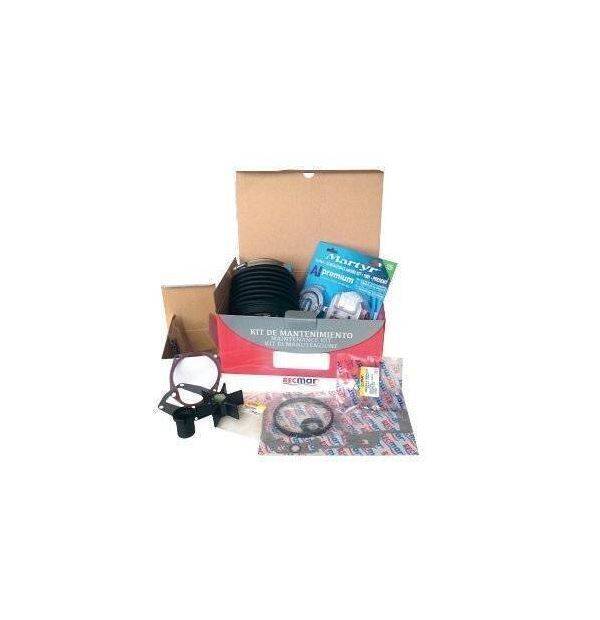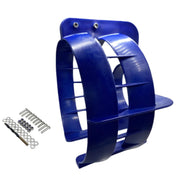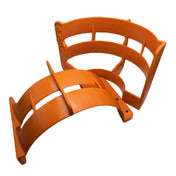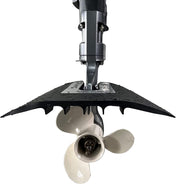KIT Proto-Oncogene Receptor Tyrosine Kinase – Research & Clinical Summary (CD117/SCFR)
KIT Proto-Oncogene Receptor Tyrosine Kinase – Research & Clinical Summary (CD117/SCFR) is backordered and will ship as soon as it is back in stock.
Couldn't load pickup availability
Worry-free returns
Worry-free returns
You may return most new, unopened items within 7 days of delivery for a full refund. We'll also pay the return shipping costs if the return is a result of our error (you received an incorrect or defective item, etc.).
You should expect to receive your refund within four weeks of giving your package to the return shipper, however, in many cases you will receive a refund more quickly. This time period includes the transit time for us to receive your return from the shipper (5 to 10 business days), the time it takes us to process your return once we receive it (3 to 5 business days), and the time it takes your bank to process our refund request (5 to 10 business days).
If you need to return an item, simply login to your account, view the order using the "Complete Orders" link under the My Account menu and click the Return Item(s) button. We'll notify you via e-mail of your refund once we've received and processed the returned item.
Delivery and Shipping
Delivery and Shipping
Free standard shipping on all orders under 1 KG
Product Details
The KIT Proto-Oncogene Receptor Tyrosine Kinase (CD117) is a key transmembrane protein encoded by the KIT gene. This protein is critical for cell signaling pathways influencing cell survival, proliferation, differentiation, and migration. As the receptor for stem cell factor (SCF), KIT plays an essential role in hematopoiesis, melanogenesis, gametogenesis, and mast cell development.
This protein is also identified by several alternative names, including c-Kit, SCFR (Stem Cell Factor Receptor), PBT, and MASTC.
- Acts as a primary therapeutic target for specific cancers, notably Gastrointestinal Stromal Tumors (GIST) and systemic mastocytosis.
- Serves as a crucial immunohistochemical marker for the diagnosis of GISTs, mast cell tumors, and seminomas.
- Essential for the normal development and function of hematopoietic stem cells, mast cells, melanocytes, and germ cells.
Technical Specs
- Protein Type
- Receptor Tyrosine Kinase (Type III)
- Gene Location
- Chromosome 4q12
- Protein Structure
- Transmembrane glycoprotein with 5 extracellular immunoglobulin-like domains, transmembrane region, and intracellular tyrosine kinase domain
- Molecular Weight
- 145 kDa
- Ligand
- Stem Cell Factor (SCF, also known as Steel Factor or c-Kit Ligand)
- Signaling Mechanism
- Ligand binding → Dimerization → Autophosphorylation → Downstream signaling cascade activation
- Cell Expression
- Hematopoietic stem cells, mast cells, melanocytes, germ cells, interstitial cells of Cajal
- Clinical Significance
- Mutations associated with GIST, mastocytosis, AML, piebaldism; therapeutic target
- Diagnostic Utility
- Immunohistochemical marker for GIST, mast cell tumors, seminomas
- Gene Exon Count
- 21
- Product Height
- 16.5
- Product Width
- 22.5
- Product Length
- 32.0
Associated Medical Conditions
Mutations in the KIT gene are linked to several medical conditions. The tables below detail the clinical significance of both gain-of-function and loss-of-function mutations.
Gain-of-Function Mutations
| Condition | Mutation Location | Clinical Significance | References |
|---|---|---|---|
| Gastrointestinal Stromal Tumor (GIST) | Exon 11 (common), Exon 9, 13, 17 | Primary driver mutation in ~80% of GISTs; therapeutic target for imatinib | MedlinePlus, NCBI Gene |
| Systemic Mastocytosis | Exon 17 (D816V most common) | Present in >80% of cases; confers imatinib resistance | MedlinePlus |
| Acute Myeloid Leukemia | Various | Secondary mutation in subset of cases | MedlinePlus, NCBI Gene |
| Melanoma | Various | Present in subset of cases, especially mucosal and acral melanomas | NCBI Gene |
| Seminoma | Exon 17 | Present in subset of testicular germ cell tumors | NCBI Gene |
Loss-of-Function Mutations
| Condition | Mutation Type | Clinical Significance | References |
|---|---|---|---|
| Piebaldism | Various inactivating mutations | Autosomal dominant condition with white patches of skin and hair due to melanocyte development defects | MedlinePlus |
Therapeutic & Diagnostic Relevance
KIT is a significant target for both therapeutic intervention and diagnostic procedures in oncology and other fields.
Therapeutic Inhibitors
| Drug | Sensitivity Pattern | Indications | Notes |
|---|---|---|---|
| Imatinib (Gleevec) | Effective for exon 11 mutations | GIST, some leukemias | First-line therapy for KIT+ GIST |
| Sunitinib | Effective for some imatinib-resistant mutations | GIST (second-line) | |
| Dasatinib | Effective for exon 17 mutations | Some leukemias | Active against D816V mutation |
| Nilotinib | Effective for some imatinib-resistant mutations | GIST (third-line) | |
| Avapritinib | Effective for D816V mutation | GIST, systemic mastocytosis | Active against D816V mutation |
Diagnostic Applications
KIT (CD117) immunohistochemistry is a cornerstone in diagnostic pathology for the following purposes:
- Distinguishing GISTs from smooth muscle and neural tumors.
- Identifying mast cell tumors in various tissues.
- Differentiating seminomas from embryonal carcinomas in testicular pathology.
Troubleshooting & FAQ
What are the clinical implications of KIT mutations?
Gain-of-function mutations in the KIT gene are primary drivers in approximately 80% of Gastrointestinal Stromal Tumors (GIST) and over 80% of systemic mastocytosis cases. They are also found in subsets of acute myeloid leukemia and melanoma. Conversely, loss-of-function mutations can lead to conditions like piebaldism, which affects melanocyte development.
How is KIT (CD117) used as a diagnostic marker?
Immunohistochemistry (IHC) for KIT (CD117) is a standard diagnostic tool in pathology. It is essential for distinguishing GISTs from other mesenchymal tumors, identifying mast cell tumors, and helping differentiate seminomas from other germ cell tumors like embryonal carcinomas.
What therapies target the KIT protein?
Several tyrosine kinase inhibitors (TKIs) are used to target mutated KIT. Imatinib is a first-line therapy for GISTs with sensitive mutations (e.g., exon 11). Other drugs like Sunitinib, Dasatinib, and Avapritinib are used for imatinib-resistant mutations or specific mutations like D816V found in mastocytosis.
OEM vs. Aftermarket?
This listing is an aftermarket replacement (not OEM). Built to OEM-level specifications with comparable materials. Manufactured in an ISO 9002 facility, batch-inspected for consistency.
Shipping speed & cost
We ship worldwide quickly—typical transit 5–15 days. Standard shipping is free; expedited options appear at checkout where available.
Warranty & returns
Covered by a 1-year warranty against manufacturing defects under normal use. If issues arise, contact support with your order details. Returns are accepted within our standard window (unused & in original condition). See our policy page or reach out for instructions.
Safety & Important Info
- This information is for research and educational purposes only. Always consult primary, peer-reviewed sources and clinical guidelines for diagnostic or therapeutic decisions.
- This summary is a collation of data from public sources and does not constitute a primary clinical or diagnostic document.
- Interpretation and application of this information should be performed by qualified medical or research professionals.
About Sea Sierra
- Pro-Grade Standards — We supply marine parts engineered to OEM-level tolerances and tested for real-world conditions.
- Fast Global Fulfillment — Free standard delivery to most regions in 5–15 days.
- Manufacturer-Direct Value — Fair pricing without compromising on materials or QC.
Payment & Security
Payment methods
Your payment information is processed securely. We do not store credit card details nor have access to your credit card information.









